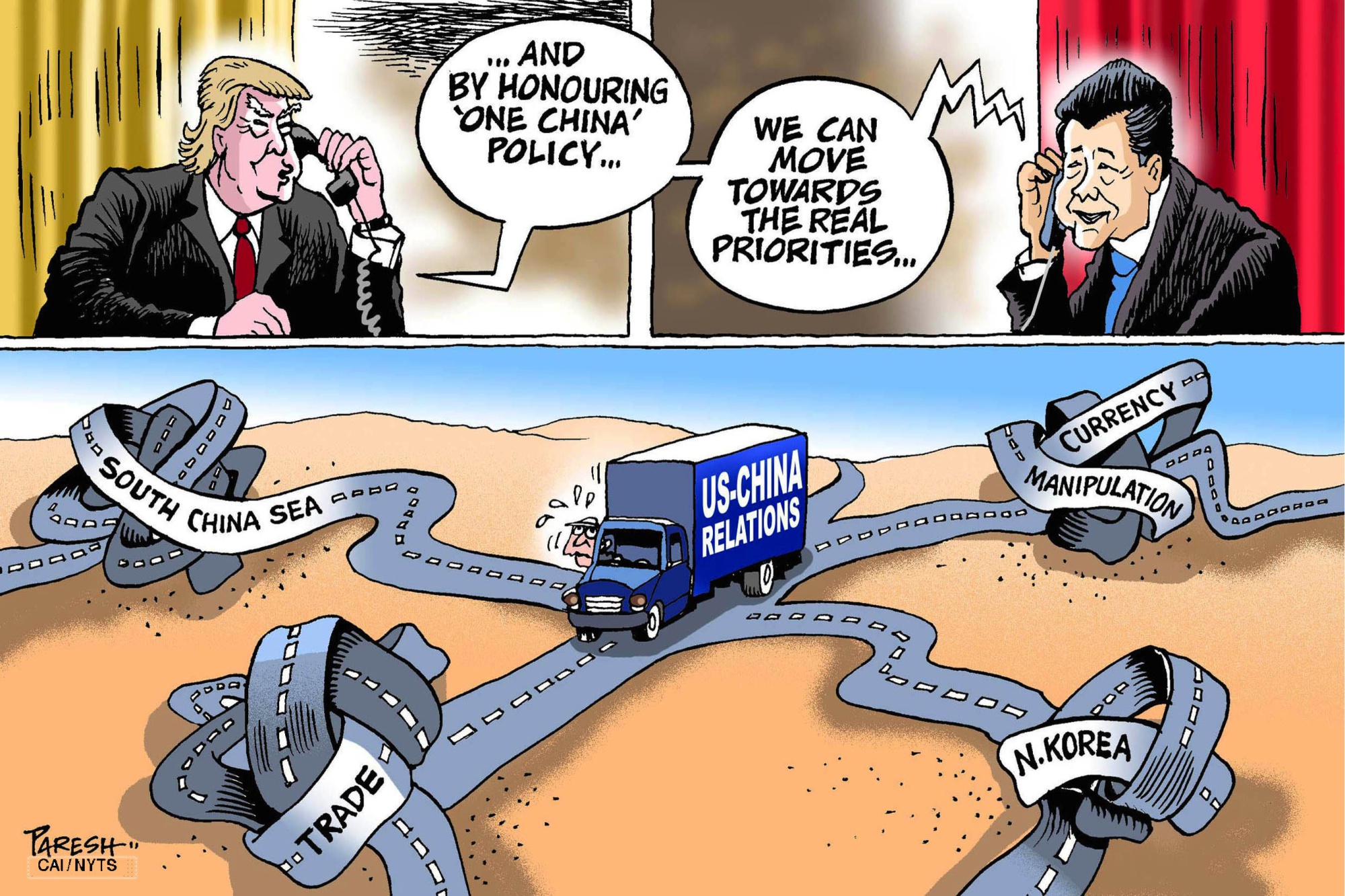Analysts trying to parse U.S. policy in the Trump era regarding the South China Sea must be prepared for stark contradictions and intellectual whiplash. It is too early to draw conclusions regarding U.S.-China relations in the South China Sea — or in general. That is a major lesson to be gleaned from the events of the last several months.
First, we had U.S. presidential candidate Donald Trump accusing China of building "a massive military complex in the middle of the South China Sea." Then newly inaugurated President Trump upset the apple cart of U.S.-China relations by accepting a congratulatory call from Taiwan President Tsai Ing-wen, and when China objected, suggesting that the bedrock of those relations — the "one-China" policy — might be used as a bargaining chip in future negotiations with Beijing.
Shortly thereafter, his nominee for secretary of state, Rex Tillerson, publicly stated that China should not be "allowed" to access the land features in the South China Sea it claims, has built up upon and occupies. This seemed to imply a "blockade" of some sort — which could be interpreted as an act of war. Then his nominee for defense secretary, James Mattis, opined that China's behavior in the South China Sea was part of "a mounting assault on global stability."


















With your current subscription plan you can comment on stories. However, before writing your first comment, please create a display name in the Profile section of your subscriber account page.